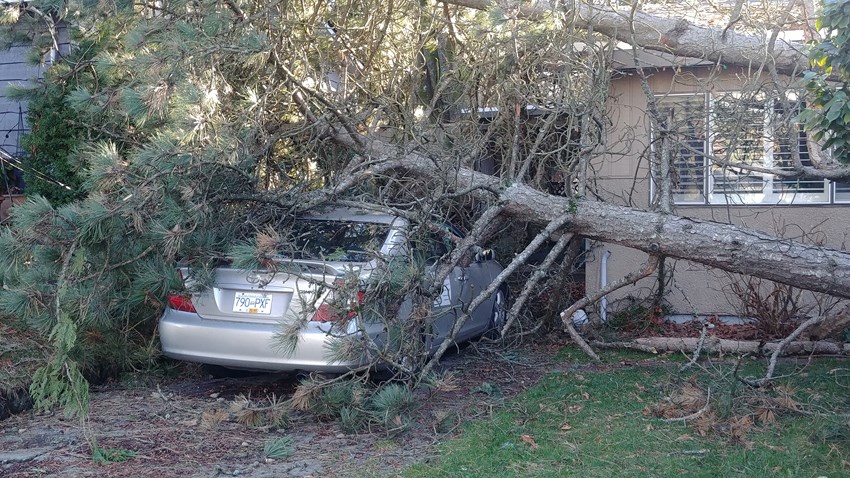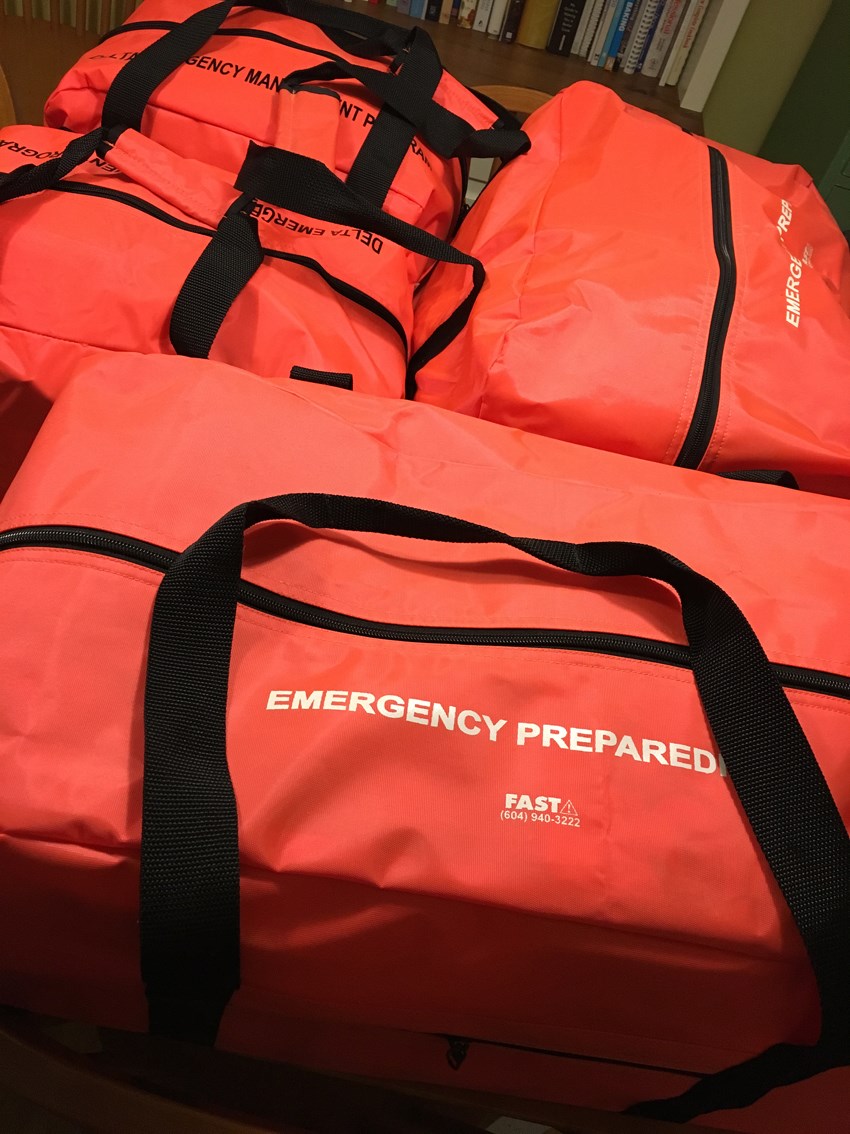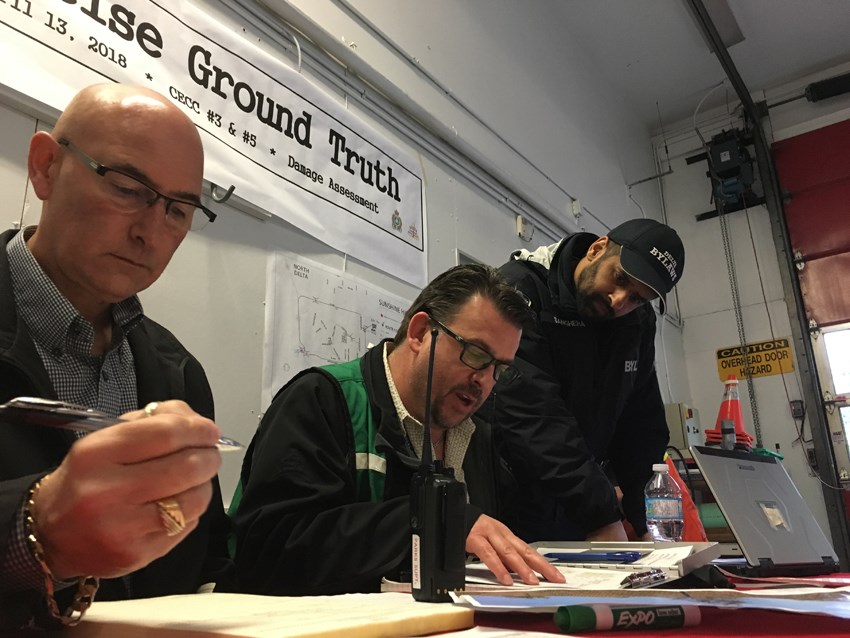Are you ready for an emergency?
It’s a question many of us think about, but, in most cases, only really ask ourselves once a disaster has come and gone.
“After an emergency, like the windstorm in December, it is even more vital for us to be prepared so we can help to take care of not only ourselves and our families, but our friends and neighbours too,” said Kate Steel, the City of Delta’s emergency social services coordinator.
“Our first responders may not be out there in the first hours being ready to take care of people, so the more that people can think about their own vulnerabilities, their own limitations and prepare for supporting themselves after a disaster, the better off they will be.”
Emergency Preparedness Week, which runs May 5 to 11, is an opportunity to encourage people to take action to be better prepared. This year’s theme is Be Emergency Ready.
While governments at all levels work to keep residents safe, everyone has a role to play in being prepared, which means having the knowledge and equipment necessary to cope when disaster strikes.
“We certainly received more calls after the windstorm from people looking for information on how they can prepare themselves and their neighbours,” said Steel.
In the first few hours of an emergency event, residents, in many cases, will be on their own.

“I think as far as emergency management goes, our first responders are going to be very taxed at the point of a large event, be it an earthquake or a big storm event, and our goal is to make sure that the people of Delta are prepared to be able to take care of themselves for a minimum of 72 hours,” said Dave Ayton, emergency management, Delta Fire Department. “That is how long it is going to take us to figure out where we have to send people, whether it is an issue of sheltering in place or sending people to community centres.”
Ayton said residents also have to understand about not overloading 9-1-1 and know the best ways to communicate with friends and family.
“These are all our concerns because we will not be able to operate as we normally do on a regular day,” he said. “During the December windstorm, for instance, there was a lot of people calling 9-1-1 simply to say that there were wires down. We had a lot of calls come into us that were essentially, for us, stop, have a look and assess and we had to move on because there was not much we could do. Prioritizing calls is essential for all of us and essential for the public to learn about as well.”
He said the goal in any major emergency is to establish the ability and condition of the infrastructure in the first 24 hours.
“We will also be getting information in from our large stakeholders like BC Ferries, Deltaport, BC Hydro, so to know that our infrastructure is solid and working is vital,” he said.
Make an emergency plan
We can't prevent disasters from happening, but residents can prepare to avoid suffering, minimize damage and come through the recovery period as quickly as possible.
It will take you about 20 minutes to make a family emergency plan online. You can then print it out. See examples at: www.Getprepared.gc.ca.
Before starting, you will need to think about:
- Safe exits from home and neighbourhood
- Meeting places to reunite with family or roommates
- Designated person to pick up children should you be unavailable
- Contact persons close by and out-of-town
- Health and insurance information
- Places for your pet to stay
- Risks in your region
- Location of your fire extinguisher, water valve, electrical panel, gas valve and floor drain

Make or get an emergency kit
In an emergency, you will need some basic supplies. You might need to get by without power or tap water. Be prepared to be self-sufficient for at least 72 hours.
“Our message to people is: know your risks, know what is going to be happening in the community for disaster, make a plan for your family (at work, at home, at play) and make a kit,” said Steel.
“A kit is a very easy thing to get together. You can certainly go out and buy one, but everything you need can be accessed in your home and should be in an easy-to-grab kit stored near an exit that you can grab and go in the event you have to evacuate.”
Basic emergency kit
- Water – at least two litres of water per person per day; include small bottles that can be carried easily in case of an evacuation order.
- Food that won't spoil, such as canned food, energy bars and dried foods (replace food and water once a year).
- Manual can opener.
- Crank or battery-powered flashlight (and extra batteries). Replace batteries once a year.
- Crank or battery-powered radio (and extra batteries) or Weatheradio.
- First aid kit.
- Extra keys to your car and house.
- Some cash in smaller bills.
- A copy of your emergency plan and contact information.
- If applicable, prescription medication, infant formula, equipment for people with disabilities, or food, water and medication for your pets or service animal.
Pre-packed kits can be purchased on the Canadian Red Cross website.
The Salvation Army also has a standard kit as well as a car kit available for purchase on its website. Various other kits and supplies are also available for sale from other commercial entities.
Resources
To learn more about emergency preparedness, visit GetPrepared.ca or on your mobile device at m.GetPrepared.ca
- Canadian Red Cross: www.redcross.ca/prepare
- St. John Ambulance: www.sja.ca
- Salvation Army: www.SalvationArmy.ca
- F.A.S.T. First Aid & Survival Technologies Limited: https://fastlimited.com/
- City of Delta: www.delta.ca. In the event of an emergency, the public will be advised to monitor Delta’s social media accounts as well as Delta’s home page.
“We urge people to contact us at any time,” added Steel. “If they have a strata or a neighbourhood group of 15 or more people that they would like a presentation, we would be happy to come out and give a personal presentation on how to get prepared.
“Emergency preparedness is never important until it is, so anything that people can do to lead up to an event is great.”



